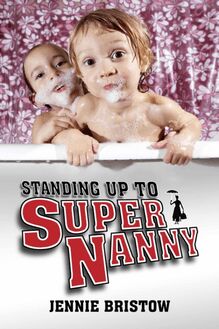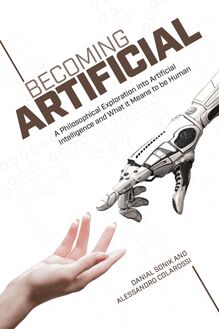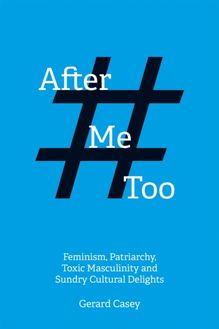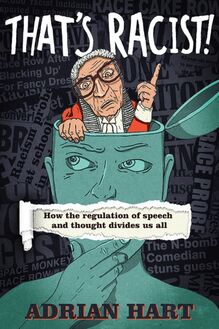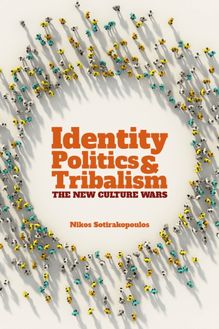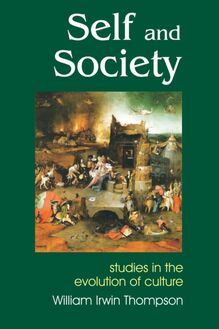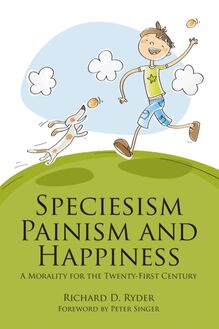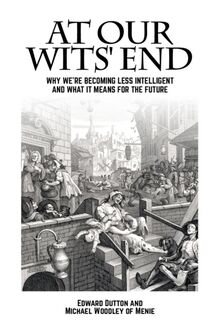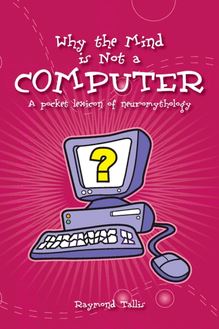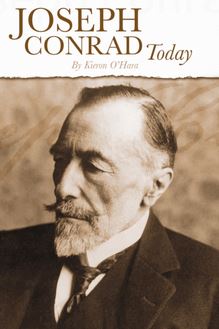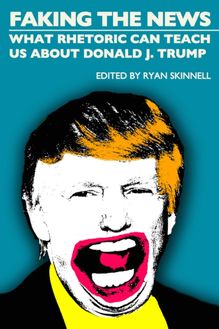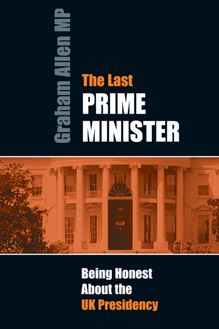Independent , livre ebook
91
pages
English
Ebooks
2016
Vous pourrez modifier la taille du texte de cet ouvrage
Obtenez un accès à la bibliothèque pour le consulter en ligne En savoir plus
Découvre YouScribe en t'inscrivant gratuitement
Découvre YouScribe en t'inscrivant gratuitement
91
pages
English
Ebooks
2016
Vous pourrez modifier la taille du texte de cet ouvrage
Obtenez un accès à la bibliothèque pour le consulter en ligne En savoir plus
Publié par
Date de parution
04 avril 2016
Nombre de lectures
0
EAN13
9781845406424
Langue
English
Publié par
Date de parution
04 avril 2016
Nombre de lectures
0
EAN13
9781845406424
Langue
English
Title Page
INDEPENDENT
The Rise of the Non-Aligned Politician
Richard Berry
SOCIETAS
essays in political
& cultural criticism
imprint-academic.com
Publisher Information
Published in the UK by Societas
Imprint Academic
PO Box 200, Exeter
EX5 5YX, UK
Digital edition converted and distributed in 2016 by
Andrews UK Limited
www.andrewsuk.com
Copyright © Richard Berry 2008, 2016
The moral rights of the author have been asserted.
All rights reserved. This book is sold subject to the condition, that no part of this book is to be reproduced, in any shape or form. Or by way of trade, stored in a retrieval system or transmitted in any form or by any means, electronic, mechanical, photocopying, recording, be lent, re-sold, hired out or otherwise circulated in any form of binding or cover other than that in which it is published and without a similar condition, including this condition being imposed on the subsequent purchaser, without prior permission of the copyright holder.
Acknowledgements
For their support and inspiration, I would like to thank Andy Dixon at Ridge Danyers, Mark Brangwyn at London Councils, Kate Huntington at Reddish Vale, Anthony Freeman and the team at Imprint Academic, Rob and Pat Berry, Gemma Lowe, Laura White, Craig Berry, Steven Berry, Evengelia Petrikkou, Peter Scott, Ian Parker, Jenny Duong, the many politicians who answered my questions and the staff who made the interviews happen, in particular Olive Anderson in Hartlepool, John Edwards and a switchboard operator who went beyond the call of duty in Stoke-onTrent, Ruth Lutt in Bedford, Joanne Thomas at the House of Commons and Brian Walters at the Welsh Assembly.
Introduction
The Ice is Melting
The debate over climate change has acquired a very familiar form in recent years. Environmental activists warn about the coming catastrophe and the limited time we have available to halt the process. The corporations and their political supporters counter that the economic realities leave any substantial changes impossible. Then, so the routine goes, the occasional investigative journalist or publicity-hungry politician flies up to the Arctic Circle, points at a glacier and exclaims, “Look, the ice is already melting!”
Something similar is happening in party politics. Observers have long predicted the upcoming demise of the political party, made meaningless as they are by shifting class structures and the dominance of the floating voter. Others laugh this off as wildly unrealistic; democracy would be unworkable, even unthinkable, without the political party to aggregate societal interests and to present alternative political programmes, they say. Meanwhile, every so often we receive a shock, a suggestion of things to come. The ice melts.
It might be a monkey in Hartlepool, a consultant in Kidderminster, a white knight in Tatton, even Robocop in Middlesbrough. It happens when voters elect as their representative someone who has eschewed the party line in favour of their own independent platform. And it is happening more and more.
This book seeks to document the developments giving rise to these contrasting interpretations. This is not done primarily through examination of electoral trends, although it is important to get a picture of these. Rather, examination comes through talking to the people involved: by investigating their motivations and considering the kinds of relationships they have struck up with voters, fundamentally, asking why the party system has been rejected by politician and elector alike. Why do these people stand for election, and why do people vote for them? I want to take a detailed look at political life in Britain today to discover the very real feelings these changes spring from.
To this end, we will visit Ray Mallon, the police chief turned elected mayor of Middlesbrough, and his equivalents in both Hartlepool and Bedford, where former football club mascot Stuart Drummond and newspaper publisher Frank Branston have taken power. We will talk to the anti-corruption campaigner Martin Bell, former Member of Parliament for Tatton, as well as MPs Dr Richard Taylor in Wyre Forest and Dai Davies and Trish Law, the activists who turned against their own party in Blaenau Gwent.
We will also visit some lesser known members of the vanguard of the independents. In Wigan, London and on Dorset’s Isle of Portland, local movements have delivered similar blows to the party system, and these will be considered in turn. Meanwhile in Stoke-on-Trent, arguably party politics’ Patient Zero, we have a varied array of independent groupings and non-groupings and it is important to understand the causes behind this.
It promises to be an intriguing journey: one that at first glance might appear to be a trip to the political margins, but which might actually give us a compelling vision of our not-too distant future.
Non-aligned Politics
At this stage nobody can say conclusively whether we are witnessing the beginnings of a meaningful trend or merely a blip, based on circumstances that will likely disappear as quickly as they have arisen. Others still will maintain that the presence of independent politicians is a rather routine phenomenon for British politics, and has been even throughout the era of party dominance.
For those interpreting current events as a growing trend that could well serve to re-shape British politics, analysis has to begin with consideration of recent electoral results. Before this, however, it is important to make a definitional note of what is meant by ‘independent’ in this context. Certainly, I expect some readers might be surprised that I am visiting Wigan, Kidderminster and the London Assembly, given that in these areas most of the politicians being analysed are not formally independent, but actually nascent political parties.
In a strict sense this is true. In Wigan, for instance, the politicians I am interested in are all paid-up, card-carrying members of the ‘Community Action Party’. Similar party-type structures exist in the other areas mentioned. However, I believe it is appropriate to include groups such as these in the overall trend. They are, after all, an entirely different form of party from those we are accustomed to. At their core, what these groups represent is the decision by voters to turn away from traditional parties in favour of a more ‘local’ choice. And the description best bringing these disparate political actors together is ‘non-aligned’.
What defines the non-aligned politician? There are various common characteristics, but I believe that two key qualities stand out above all others. The first is that non-aligned politicians do not commit themselves to a specific set of principles or policy programme that has been determined and adopted ‘collectively’ by an organisation on a permanent basis. They pledge allegiance to no other god, in other words. The second characteristic is that non-aligned politicians are tied irrevocably to a single geographical area, without any concerted effort to ‘spread the revolution’.
One or both of these qualifications exclude the vast majority of Britain’s political class. All of the major parties and most of the minor ones possess systems of belief or a common ideology -linked to policy objectives - to which party members adhere. For most parties, shared principles will be enshrined to some extent in a constitution, as in Labour’s ‘ Clause IV’. [1] Of course, these beliefs are subject to competing interpretations internally, and may even appear vague or indistinct to some voters, but we know there is some level of agreement among members about not just political but also policy goals. We know members of the Green Party want more protection for the environment, just as we know the British National Party wants to limit immigration and the UK Independence Party wants to leave the European Union. There are bound to be some members of any party who, for some reason, go against the ideological grain, but that does not change the fact that these organisations exist to pursue a defined programme.
Clearly, the purely independent politicians do not meet this criterion, as they do not belong to a political party. But do the local, ‘non-aligned’ parties possess shared beliefs? The simple answer is no. Undeniably, we should expect to see a degree of similarity to exist between the beliefs of members of these parties. Those activists who flocked under Frank Branston’s ‘Better Bedford’ banner probably would not be able to co-operate as they did if their views on equality, race, or the public services were radically dissimilar, for instance. In Wyre Forest, members of the ‘Health Concern’ party have a range of political beliefs, but are united by a common concern for a particular local issue.
However, the key point is that this is not necessarily the case. Members of non-aligned parties officially share little more than dissatisfaction with the national party politicians, and in some of the larger non-aligned groups it is possible to discern some quite substantial internal political differences, making the traditional left/right interpretations of party beliefs quite irrelevant.
Readers would be forgiven for thinking at this point that the archetypal non-aligned politician based on the discussion above is none other than Tony Blair. Indeed, Keith Sutherland dedicated his recent book on the death of the political party to Blair. [2] It is hard to disagree. As a leader Blair has consistently endeavoured to distance himself from his own party; his symbolic reform of Labour’s aforementioned Clause IV showed how he did not feel himself bound to the traditional ideology of the party. Perhaps this explains the enduring electoral appeal he enjoyed throughout his
